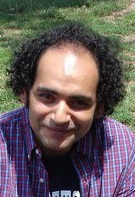
Like many other Egyptians, the attack on the Egyptian soldiers in Sinai last Sunday took me by surprise. The cause of my surprise was not the timing of the attack in Ramadan, or that it was done at Iftar time, or that a Muslim could kill a fellow Muslim during Ramadan (a few of the explanations of surprise I have heard over the past week). The main cause of my surprise was the series of consequences that followed the attack, the different reactions from the President or the military.
The way I understand it, after an attack of terrorism, a nation looks to its government for answers, and awaits information from the network of institutions that are supposed to overlook matters of national security and state policy. The reactions of the military and Mohamed Morsy did not present answers; they rather raised more questions and left them unanswered.
Less than 48 hours later, the military launched an operation in Sinai aiming to cleanse it of terrorist elements. Tanks were deployed, people were arrested and military boots were on the ground blocking the tunnels in a very short time. An operation of that magnitude in Sinai would presumably have a detailed strategy behind it. It goes without saying that Egyptian-Israeli coordination must have taken place since the presence of this kind of weaponry in Rafah is a violation of the Camp David peace treaty. If the military is capable of developing such a strategy in less than 48 hours and of acting politically to implement that strategy, then it follows that the military knows what to look for and who to target; it is familiar with the threat it is facing and can hence react rapidly. If this is the case, then the unanswered question is why didn’t the Egyptian military act to counter that threat a long time ago?
The gas pipeline in Sinai has been blown up 15 times since January 2011 and we do not seem to know who’s responsible until now. Why did the military succeed in less than 48 hours last week when it has been failing over the past 18 months? Are we only moved by blood? Must lives be taken and borders threatened before we decide to act? Or is the military responding in rage rather than strategically? Is it after an actual target or is it simply searching Sinai for one?
Meanwhile, President Morsy made the decision to change the head of intelligence and the governor of Northern Sinai. While these changes appear to be acts of reform, serious questions remain unanswered concerning their significance. Were these decisions due to the failure of these two men to fulfill their duties or to communicate them? Did the intelligence know about the attacks or the mere existence of threats and failed to communicate this information to the President or is the intelligence rank with negligence and therefore needs a change in leadership? Is there a state policy towards the development of Sinai that the former governor failed to implement or was the decision a tool to absorb public pressure and appoint a new governor who will work without a strategy and eventually stay put in the exact same place where all the former Northern Sinai governors were?
Among the many issues raised by the Rafah attacks, the people’s right to know is a major one. It is indeed time for an Egyptian administration that provides answers and doesn’t simply raise more questions.
